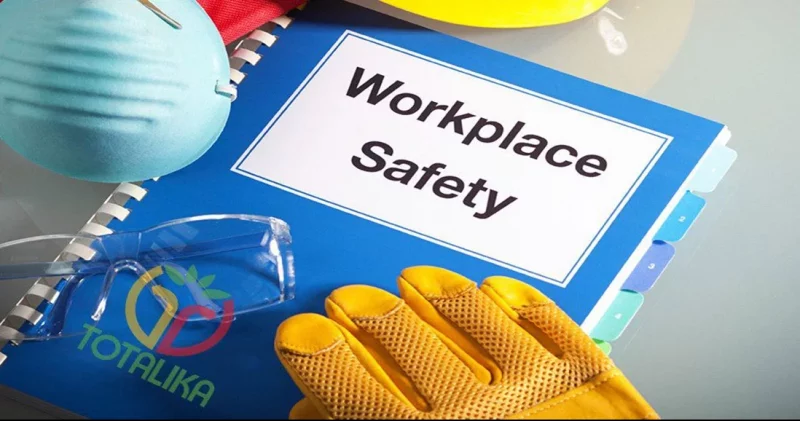5 Electrical Safety Rules To Follow At The Workplace.
In today’s electrical era, everyone works in a workspace where there is plenty of electrical equipment and wirings. No doubt that electricity has made everything swift for us to work with, but even a small error can cause great trouble and loss of resources. This post focuses on the same and informs every reader about five electrical safety rules to follow at the workplace to avoid any hazards.
Post Outline
5 Electrical Safety Rules To Follow At The Workplace.
Safety With Power Plugs & Cord
Whenever you switch the power cord on, you shouldn’t insert a plug. Instead, first, plug in a pin and then switch on the power cord. This is necessary if you want to keep yourself and your surroundings safe from a probable electrical hazard.
When you plugin, even if the switch is on, there are chances that a spark will happen because of a minor short circuit. This short circuit can prove hazardous.
Apart from that, you need to ensure that you are using good quality extension cords that have been made through the tests. Cheap quality extension cords and power plugs are also responsible for electrical hazards within closed spaces.
Be Careful Of Any Flammables
If you have a pantry in your workspace where you use gas for cooking and have too much electric equipment around, you need to be cautious. This is another potential situation for an electrical hazard to happen.
Your gas leakage and the short circuit might happen simultaneously, causing big trouble for you and everyone in the enclosed workspace on a bad day.
Suppose you have anything flammable in your office. In that case, you should be keeping it completely separate from the low-quality electrical objects. Apart from that, a workspace should have a fire extinguisher in case of emergencies.
Avoid Direct Contact With Heavy-duty Equipment
It’s understood, but most people forget that they should try to minimize their contact with electricity that’s not regulated. Suppose you are regularly operating an electrical meter or any other heavy-duty equipment at your office. In that case, you should do it only when you’re fully insulated.
Make sure that you wear shoes, slip-on, or anything that works as an insulator.
See Also: All You Need To Know About Smart Home Systems
What is an insulator?
An insulator is a material that doesn’t carry an electrical charge as effectively as a conductor does.
- Examples of insulators – are wood, plastic, rubber, and silicon.
- Examples of conductors – are iron, saltwater, and silver.
So you need to either wear a pair of shoes or stand on a foot mat to avoid minor or major shock.
If you are an electrical worker working in mega-circuits, you should use rubber gloves as a medium to avoid direct contact with electricity.
If someone you work with is in the impact of a shock, you shouldn’t hold them by hand and try to get them away from the equipment or source of the shock. Instead, do so with an insulator like a wooden stick or a plastic stick-like thing. Because if you try to rescue someone with bare hands, then it could be lethal for you as well.
Don’t Overload Circuits & Meters.
We understand that offices have plenty of work that needs to be looked after and wrapped up in a limited time. More work means more equipment because we live in a digital era, and digital devices aren’t possible without electricity.
So avoid operating too many pieces of equipment or electronic items on a single circuit or a single-phase connection. This can lead the main switch to trip off again and again. On a bad day, overloading could lead to short circuits, and short circuits can lead to fires.
If you feel that you have too much equipment in your workspace, you can apply for a second electricity connection or upgrade your subscription with the company. You can also avail of a three-phase connection for your workspace if needed.
Replace Broken Wall Plates & Switch Boards
Naturally, you will have wall plates and switchboards in your workspace premises, and you’ll have to keep safe from them. If they are broken from places, you should be cautious of them. Don’t just paste tape on the broken wall plates and switchboards.
Get all the broken switchboards replaced so that no employee or worker receives an electric shock from them. A shock could be lethal for anyone, and it might also land you in questionable situations.
People have a habit of predicting where the switches or plugs are even in the dark. Or sometimes they touch the switches with wet hands. These conditions could be hazardous for anyone if the switchboards aren’t in good condition.
Conclusion on Electrical Safety Rules
We told you everything to stay safe from electricity at the workspace, from safety tips with extension power cords to timely replacing all the broken wall plates and switchboards to avoid direct contact with electricity. Follow these religiously to avoid any mishaps. 5 Electrical Safety Rules To Follow At The Workplace.
Related Posts:
- How To Turn Off Windows Defender Window 10
- Traveling With Mac: Expectations vs. Reality
- 13 Top Tech Companies in Nigeria 2022

1 thought on “5 Electrical Safety Rules To Follow At The Workplace”